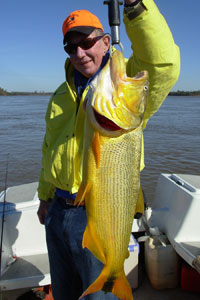Tonsil Cancer Survivor
Roll with the punches
 Outdoorsman William Myers conquered his Stage IV tonsil cancer and is back to doing what he loves: hunting and fishing.
Outdoorsman William Myers conquered his Stage IV tonsil cancer and is back to doing what he loves: hunting and fishing.
When I was diagnosed with Stage IV tonsil cancer in March 2004, I was no stranger to the health care field. I began my career with the American Academy of Family Physicians, and I then started two businesses—one producing videos for medical trade shows and the other licensing feedback software to convention bureaus and convention centers.
One day I noticed an unusual lump on my neck, so I made an appointment with my family physician. He referred me to a specialist for a needle biopsy, which revealed the malignant tumor on my tonsils. I was then referred to an oncologist who specializes in head and neck cancers. He recommended surgery to remove the tumor, followed by chemotherapy and radiation therapy. Having some experience with doctors and medical associations through my career helped me make sense of the different options, and after obtaining a concurring second opinion, I agreed to move forward with the treatment plan.
Following the surgery, my family and I were told that I had just a 10-percent chance of living for two more years. However, my wife at the time happened to work for the American College of Clinical Oncology (ACCO), and their chief researcher recommended the use of an intravenous drug called cetuximab (Erbitux) in combination with the chemotherapy and radiation therapy. My doctor had never tried this regimen before, but he was willing to give it a shot based on the recommendation of ACCO and the fact that my insurance was willing to pay for it.
I underwent six weeks of this regimen, during which time I dropped about 50 pounds and experienced fatigue, dry mouth, dry eye and numbness in my neck. In addition, the radiation caused problems with the enamel on my teeth, so I had to get 20 crowns. But it worked. Four years ago, my oncologist – who calls me his “miracle patient” – proclaimed me cured. I have the utmost admiration and respect for my entire medical team for their willingness to try something new for me. I believe that they saved my life.
When I was first diagnosed, my dominant emotions were fear and trepidation. However, I was determined to get the best care and make the most of the hand I was dealt. The support I received from my family and close friends was incredible. People helped around the house, mowed the yard, cooked meals and more. In fact, so many people visited me after surgery that the hospital – and later my nurse at home – had to restrict access.
I am now semiretired and very happy, living with my Labrador retriever, Jeff, and my cat, Lloyd. Earlier this year, my girlfriend, Denise, and I spent two months fishing in Florida. This year I also hunted and fished in South America and went fly fishing in Montana.
Having the determination to survive coupled with a positive attitude and a good support network makes living with this disease more tolerable. Dealing with a life-threatening situation is not as difficult if you’re determined. Concentrating on things like work, family and hobbies rather than on the illness helps, too.
Roll with the punches and focus on the people around you. You can do this.


